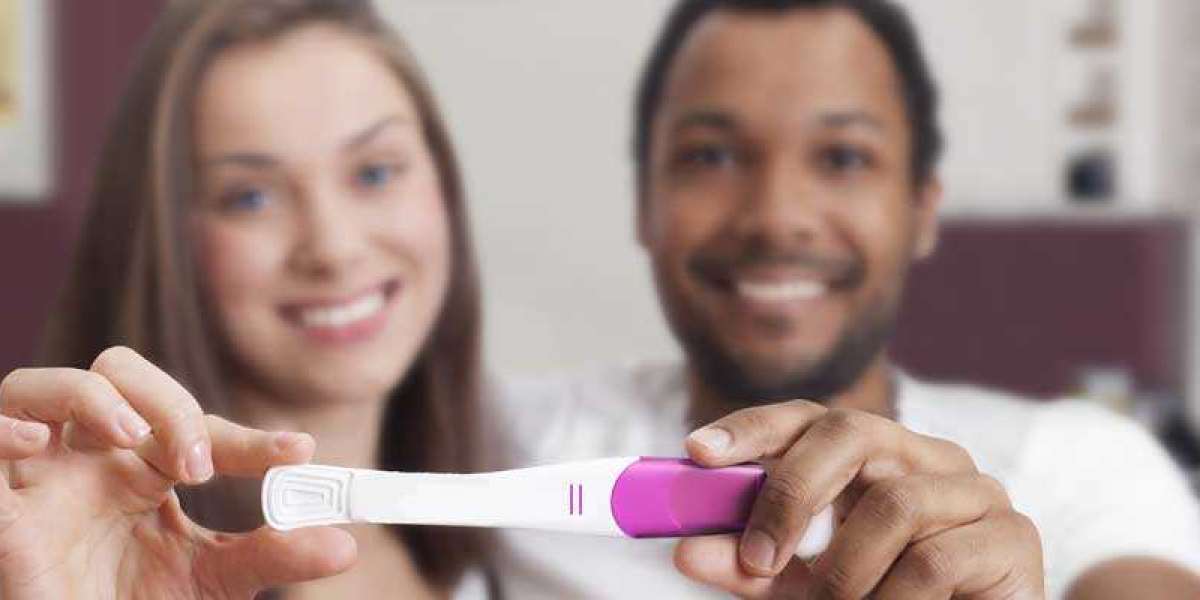Starting a family is one of life's most meaningful journeys, but for many couples, the path to parenthood can feel uncertain. When conception doesn't happen as quickly as hoped, fertility testing becomes an important step in understanding what might be happening beneath the surface. Whether you're just beginning to explore your options or have been trying for some time, knowing what these tests involve can help ease anxiety and empower you to make informed decisions about your reproductive health.
Why Fertility Testing Matters
About one in eight couples experience difficulties getting pregnant, and the reasons can involve either partner or sometimes both. The good news is that modern medicine has developed comprehensive ways to evaluate reproductive health, helping identify potential obstacles and guide personalized treatment plans. Getting tested isn't about finding fault; it's about gathering information that can open doors to solutions you might not have known existed.
When Should You Consider Fertility Testing
Most healthcare providers recommend seeking evaluation if you're under 35 and haven't conceived after one year of regular unprotected intercourse. For women over 35, that timeline shortens to six months because fertility naturally declines with age. However, if you have known health conditions like irregular periods, previous pelvic infections, or a history of cancer treatment, it makes sense to consult with a specialist sooner rather than later.
Female Fertility Tests Explained
Women's reproductive health involves multiple interconnected systems, which is why female fertility evaluation typically includes several different assessments. Your doctor will likely start with a detailed medical history and physical examination, but the real insight comes from specific diagnostic procedures.
Hormone Level Testing
Blood tests form the foundation of female fertility assessment. These tests measure key hormones that regulate your menstrual cycle and ovulation. Follicle-stimulating hormone (FSH) indicates your ovarian reserve, while luteinizing hormone (LH) helps identify ovulation patterns. Your doctor will also check estradiol, progesterone, and anti-Müllerian hormone (AMH) levels, each providing unique information about your reproductive function. Thyroid hormones and prolactin are also evaluated since imbalances can significantly affect fertility.
Ovulation Monitoring
Understanding whether and when you're ovulating is crucial for conception. Beyond tracking your menstrual cycle, your doctor might recommend ovulation predictor kits or serial ultrasounds to monitor follicle development. Some women also track basal body temperature changes, though this method provides retrospective rather than predictive information.
Imaging and Structural Assessments
A transvaginal ultrasound allows your doctor to visualize your ovaries and uterus, checking for conditions like polycystic ovary syndrome, fibroids, or other structural abnormalities. For a more detailed look at your fallopian tubes and uterine cavity, a hysterosalpingography (HSG) uses a special dye and X-ray to reveal blockages or abnormalities that might prevent pregnancy. In some cases, doctors might recommend a sonohysterogram or even minimally invasive procedures like hysteroscopy or laparoscopy for direct visualization.
Male Fertility Tests Explained
Male factor infertility contributes to about half of all fertility challenges, making comprehensive male testing just as important as female evaluation. The assessment process is generally less invasive but equally informative.
Semen Analysis
The cornerstone of male fertility testing is a semen analysis, which evaluates multiple parameters of sperm health. Laboratories assess sperm count (how many sperm are present), motility (how well they move), morphology (their shape and structure), and the volume and consistency of seminal fluid. This test requires abstaining from ejaculation for two to five days beforehand to ensure accurate results. Because sperm production can vary, doctors often recommend two separate analyses performed a few weeks apart.
Hormone Evaluation
Just like women, men's reproductive function depends on proper hormone balance. Blood tests can measure testosterone, FSH, LH, and prolactin levels to identify hormonal imbalances that might affect sperm production. Low testosterone or elevated prolactin, for example, can significantly impact fertility.
Additional Specialized Testing
If initial results suggest problems, your doctor might recommend advanced sperm function tests, genetic screening, or scrotal ultrasound to examine the testicles and surrounding structures. Some men undergo testing for antisperm antibodies, which occur when the immune system mistakenly targets sperm cells.
Comprehensive Fertility Screening Approaches
Many fertility clinics now offer comprehensive fertility screening tests that evaluate both partners simultaneously. This coordinated approach saves time and provides a complete picture of a couple's reproductive potential. These evaluations combine blood work, imaging, and laboratory analysis into a streamlined process that identifies issues faster than testing each partner separately.
Interpreting Your Results
Getting test results back can feel overwhelming, especially if they reveal unexpected challenges. Remember that many fertility issues are treatable, and abnormal results don't mean pregnancy is impossible. Your fertility specialist will explain what each finding means and discuss available treatment options, which might include medication, surgery, assisted reproductive technologies like IUI or IVF, or lifestyle modifications.
Taking the Next Step
Knowledge is power when it comes to fertility. Understanding what tests are available and what they reveal helps you advocate for your reproductive health and make decisions that align with your goals. Whether your results show clear paths forward or suggest more complex challenges, fertility testing provides the roadmap you need to move forward with confidence.
If you're considering fertility testing, start by scheduling a consultation with a reproductive endocrinologist or fertility specialist. They'll create a personalized testing plan based on your unique situation, medical history, and concerns. Remember, seeking answers isn't giving up on natural conception; it's taking proactive steps toward building the family you envision.














